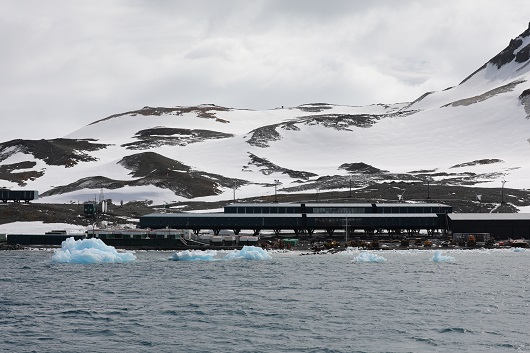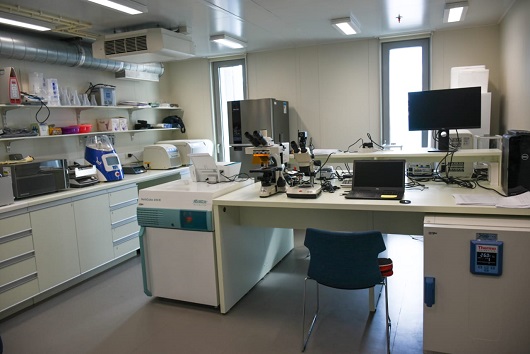Fiocruz inaugurates a laboratory in Antarctica
12/02/2020
Pamela Lang (AFN)
With the inauguration of the new Comandante Ferraz Antarctica Station on January 15, Fiocruz now relies on a permanent laboratory in the continent. Fiolab is the result of a cooperation agreement signed with the Secretary of the Interministerial Commission for Marine Resources (Secirm/Brazilian Navy), and will be a biosafety laboratory prepared to respond to the country’s needs regarding epidemiological and public health surveillance and to provide support to health and environment research in Antarctica.

With the inauguration of the new Comandante Ferraz Antarctic Station, Fiocruz will have a permanent laboratory on the continent (photo: Paulo Lara)
In spite of the huge variety of organisms and of a rich and diverse ecosystem, there are still few studies on the impact of these environments on the health of animal and humans, or on the continent itself and South America. During the four years the project is intended to last, researchers will be studying viruses, bacteria, fungi, lichens, mycobacteria and helminths that may be present in the animals that live in or circulate in the region, in the water, the soil, the rocks and in the permafrost, a type of soil found in the Arctic region and made up of soil, ice and rocks, all permanently frozen.
For this purpose, Fiocruz has been rounding up experienced researchers in different areas to create a single team. The challenge for these experts will be to study the Antarctic ecosystem in an integrated way, starting from a comprehensive perspective of health. According to Marco Krieger, Fiocruz’s Vice-President of Production and Innovation in Health, the partnership with the Brazilian Navy and the activities of the institution in Antarctica strengthen the strategic role played by Fiocruz in Brazil. “With research laboratories that are references at an international level, biological collections, healthcare units, and factories that produce pharmaceutical drugs and vaccines, Fiocruz has the ability to transform its researches and discoveries into products that benefit the population. An institution that has the differential of having a complete chain: from basic research to product delivery”, highlights the vice-president.
In addition to the important role of epidemiological surveillance, Fiocruz’s research in Antarctica also aims to investigate threats and opportunities that the microorganisms present in the region may offer to human health.
In the field of threats, the studies will search for new pathogens, such as viruses, fungi and bacteria that may appear after the thawing of the polar cap, as lower ice layers and soil are exposed and melted when temperatures increase, and also as a result of the migration of species that will be looking for food in other environments.

Experts will have the challenge of studying the Antarctic ecosystem in an integrated manner, from a broad health perspective (photo: Win Degrave)
Another important line of research is bioprospecting. Extremophiles, organisms that thrive in extreme environments, contain differentiated molecules and physiological and chemical skills when compared to everything else we see in other places, all with the potential to develop new health products and technologies, such as drugs and supplies.
Fiolab will be offering not only all the support necessary to the studies developed by Fiocruz researchers, but it will also provide support to the training of professionals of other institutions in the area, expand partnership relationships with national and international collaborators and exchanges with international research institutes in the region.
Fiocruz’s research projects in Antarctica
Fiocruz started its researches in Antarctica as a result of a public notice of the National Council for Technological and Scientific Development (CNPq/MCTIC) for the development of research projects in the region. The project was approved in December 2018 and will be part of the Brazilian Antarctic Program (Proantar), led by the Interministerial Program for Marine Resources (Cirm), of the Brazilian Navy. The Fiocruz team spent almost a year getting ready for their first expedition, which was kicked off in December 2019. A second team of researchers followed their tracks in January 2020.


